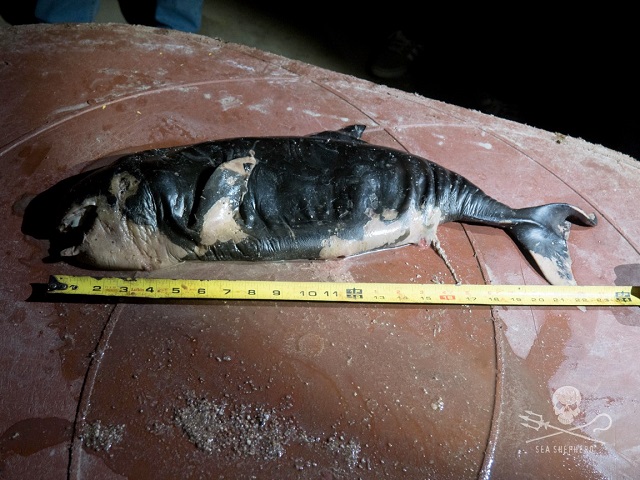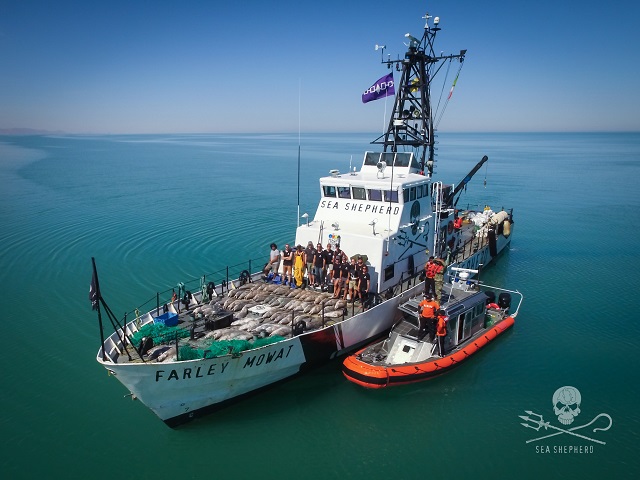Baby Vaquita Porpoise Found Dead
Sea Shepherd activists have found a dead newborn vaquita porpoise on a beach in the Northern area of the Gulf of California. The species is nearly extinct with less than 30 individuals estimated to be alive.

The organization’s M/V Farley Mowat and M/Y Sam Simon have been patrolling the upper Gulf since last fall.
Sea Shepherd handed over the baby vaquita corpse to the Mexican authorities, and a necropsy will be performed to determine the cause of death. The most common cause in the Gulf of California for the vaquita is getting caught in one of the numerous illegal gillnets hidden underwater, set up to trap the totoaba bass. Both the vaquita and the totoaba are similar in size and once the vaquita becomes entangled in the net, it is unable to reach the surface of the water to breathe, causing it to drown.
The body of a dead adult was reported nearby, but the sighting has not been confirmed.
“Under the stress of fighting for its life, a mother could have discharged the calf,” hypothesized Operation Milagro campaign leader Captain Oona Layolle.
The organization retrieved a net containing 66 dead totoaba. A 67th one was found alive and set free.

Illegal fisherman and Mexican criminal cartels target the totoaba to export its swim bladder for sale on the black market in China and Hong Kong for unsubstantiated medicinal properties. There it can fetch more than $20,000 per kilogram. Due to this high street value, the totoaba bladder is frequently referred to as “aquatic cocaine” and is the only reason the animals are killed.

that matters most
Get the latest maritime news delivered to your inbox daily.
“We’ve never found as many dead totoaba in one net,” said Layolle, who was on hand to witness their destruction by the Federal Agency of the Environmental Protection after the carcasses were handed over to the Mexican government organization. “The illegal fishing activity has never been so dramatic here in the Gulf of California. We have been witnessing poacher’s activity day and night. High season for totoaba poaching is now hitting hard. It is having a huge impact on the biodiversity of this place. This is our last chance to save the species from extinction. But it seems that human ignorance and greed won’t stop.”
More information is available here: Saving the Vaquita Porpoise
